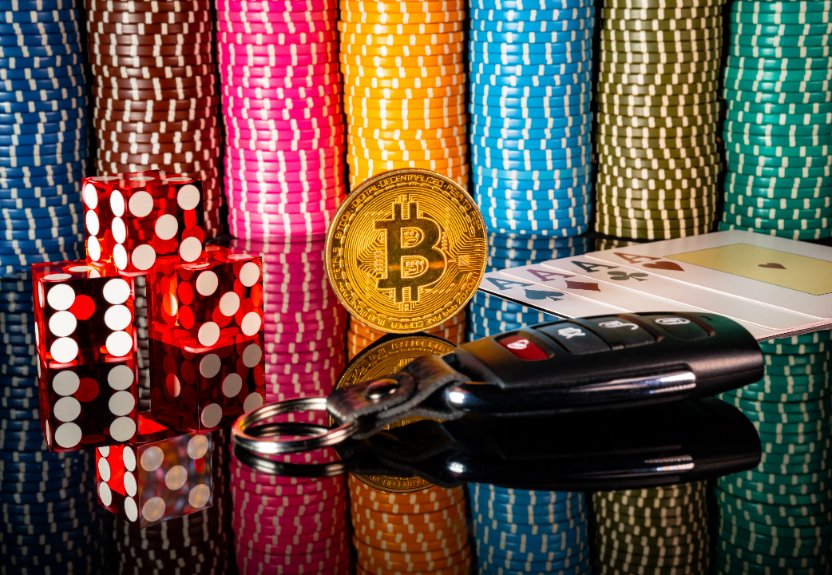This Q&A is the full interview with Dr. Lia Nower. For our deep dive into cryptocurrency trading addiction, with input from the full panel of experts, check out this article. Below is an interview with Dr. Lia Nower, Professor and Director of the Center for Gambling Studies and Addiction Counselor Training (ACT) Program. This is the full transcript of our interview, quotes from which were published in our main article on the topic here. For a deep dive into the topic of cryptocurrency trading addiction and its links to gambling, follow this link. As for the full interview with Dr. Lia Nower, see below.
CoinJournal (CJ): Do you think there are similarities between cryptocurrency trading addiction and gambling addiction? If so, could you name the most notable ones? They are not different vices. Trading cryptocurrencies can be a form of gambling addiction. The game is to risk something of value (money) on an uncertain outcome with the hope of making a profit. People who frequently trade cryptocurrencies (instead of holding cryptocurrencies as an investment) are gambling.
CJ: In your opinion, what makes activities like trading so addictive? Due to the volatile nature of cryptocurrencies, a person cannot predict whether he will win or lose a lot. There’s a huge rush of the pleasure chemical, dopamine, when it surges and you’ve suddenly tripled your money. On other days, you can lose a lot more, but this also has an associated rush, albeit in a negative way. In addition to emotion, there is also the variable ratio booster scheme associated with high-stakes trading. When there is a large variation in return at unpredictable intervals, this is the most addictive form of conditioning.
CJ: What are your thoughts on influencers who, in exchange for a fee from the founders, promote shady cryptocurrencies to their followers with little knowledge of how it works – do you think this is problematic? You don’t want to know my opinion of influencers in general… They prey on the average person’s FOMO.
CJ: In your opinion, would the daily volatility of cryptocurrency prices affect mental health as people see their investments go up and down so widely each day? Yes, it promotes an addictive cycle: worry, feelings of withdrawal, tolerance (needing to buy more to feel the same level of arousal), stalking (buying more to recoup losses). It can completely consume someone mentally in such a way that they neglect the people and responsibilities in their lives.
CJ: Research on cryptocurrency trading addiction is still limited, do you think the need for this is likely to increase in the future? Most of us in the field of gambling studies already include cryptocurrency trading in our research studies as a gambling activity. I think more people will start studying it if it continues to be popular and volatile. If this becomes a stable commodity, it will be used for investment. It’s similar to the difference between investing in long-term stocks and trading margins and options, a form of gambling.
CJ: Do you believe that the cryptocurrency industry should be doing more to promote safe investments and address the problem of addiction? I think they should be more connected with resources to help problem gamblers, but of course they don’t want their product to be seen as gambling. As it is inherently risky, there is not much they can do about volatility at this point, which will make it dangerous for thrill seekers and those looking to get rich the easy way.
CJ: Conventional gaming is restricted in many territories to consumers over the age of 18. Do you believe that there should be a similar rule within cryptocurrency in order to protect younger and more impressionable minds from possible addiction? Definitely. But I also think it should be the case for risky stocks. As you probably know, there are some basic requirements you need to meet in order to trade margins and options, but some gamified apps got around this by allowing people to review their responses to trading. Setting an age limit on these things can protect some younger people who tend to be more impulsive. But it wouldn’t do much good for the naive trader who hopes to make money quickly without the experience.
CJ: If I can press you for a yes or no answer, do you believe the world would be a happier place without gaming? Gaming is a form of entertainment. For most people, it’s not a problem. It’s just a problem for some. So I don’t think it affects happiness for most people.
CJ: Similar to the question above, would the world be a better place without investing in cryptocurrencies? Same answer as the previous question.
CJ: What advice can you give to people interested in trading cryptocurrencies, who may be predisposed to gambling-related addictions? If you are investing in cryptocurrencies when they are down and you plan on holding them for the long term or for a reasonable amount of time and then selling them, this sounds like a good investment strategy if you can tolerate the risk. If you are in the market daily buying and selling, you are betting and you probably shouldn’t be trading cryptocurrencies.

